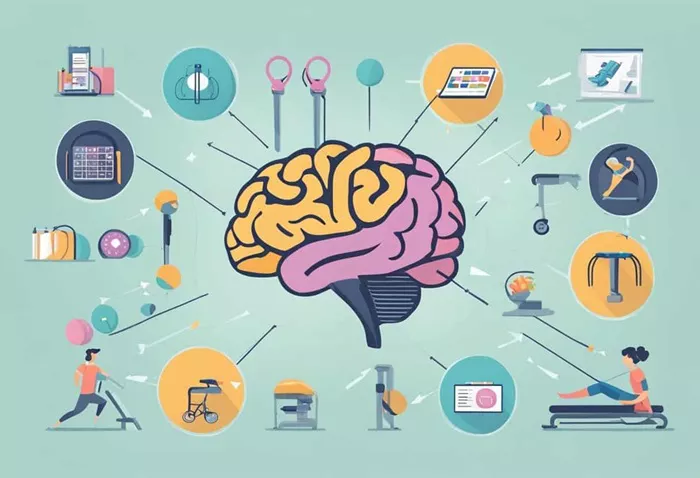Exercise is often associated with physical health benefits, such as weight management and improved cardiovascular function. However, its intellectual benefits are equally significant and deserve attention. Regular physical activity not only enhances overall well-being but also plays a crucial role in cognitive function, emotional stability, and mental resilience. This article explores the various intellectual benefits of exercise, delving into how it influences brain health, memory, creativity, and emotional well-being.
The Connection Between Exercise and Brain Function
Neurogenesis
One of the most compelling intellectual benefits of exercise is its ability to promote neurogenesis—the process of generating new neurons in the brain. Studies have shown that aerobic exercises, such as running or cycling, significantly increase the production of brain-derived neurotrophic factor (BDNF), a protein that supports neuron growth and survival. Higher BDNF levels are associated with improved learning and memory capabilities.
Enhanced Cognitive Function
Regular physical activity has been linked to improved cognitive functions, including attention, memory, and executive functions. Exercise increases blood flow to the brain, delivering essential nutrients and oxygen that enhance neuronal health. This increased cerebral blood flow is crucial for maintaining cognitive sharpness as we age.
Memory Improvement
Exercise has a profound impact on memory retention and recall. Engaging in physical activities stimulates the hippocampus—a region of the brain essential for forming new memories. Research indicates that individuals who incorporate regular exercise into their routines experience better memory performance compared to sedentary individuals.
Mood Regulation and Emotional Stability
Stress Reduction
Exercise is a powerful tool for managing stress. Physical activity triggers the release of endorphins—chemicals in the brain that act as natural painkillers and mood elevators. This biochemical response helps alleviate feelings of anxiety and depression, fostering a more positive outlook on life.
Improved Sleep Quality
Quality sleep is vital for cognitive function and emotional regulation. Regular exercise contributes to better sleep patterns by helping individuals fall asleep faster and enjoy deeper sleep cycles. Improved sleep enhances cognitive performance during waking hours, leading to better focus and productivity.
Boosting Self-Esteem and Confidence
Engaging in regular physical activity can lead to significant improvements in self-esteem and self-worth. Achieving fitness goals—whether it’s running a certain distance or lifting heavier weights—instills a sense of accomplishment that translates into other areas of life. This boost in confidence can enhance social interactions and overall mental well-being.
See Also: What Are The Best Home Strength Training No Equipment?
Creativity Enhancement
Physical Activity as a Catalyst for Creativity
Exercise has been shown to stimulate creativity. Engaging in physical activities can lead to “aha” moments—sudden insights or solutions to problems. The combination of increased blood flow to the brain and the release of endorphins creates an optimal environment for creative thinking.
Mindfulness Through Movement
Many forms of exercise, such as yoga or tai chi, emphasize mindfulness—a state of active, open attention to the present moment. Practicing mindfulness through movement can enhance cognitive flexibility, allowing individuals to approach problems from different angles and think outside the box.
Social Interaction and Cognitive Engagement
Building Social Connections
Participating in group exercises or team sports fosters social interaction, which is crucial for mental health. Social engagement has been linked to lower rates of cognitive decline in older adults. Building relationships through physical activities creates a support network that enhances emotional resilience.
Cognitive Engagement Through Learning New Skills
Trying new forms of exercise or sports requires learning new skills, which engages various cognitive processes. This continual learning keeps the brain active and adaptable, promoting lifelong cognitive health.
Conclusion
In conclusion, the intellectual benefits of exercise extend far beyond physical fitness. Regular physical activity enhances cognitive function, improves memory retention, regulates mood, boosts self-esteem, stimulates creativity, fosters social connections, and promotes overall mental resilience. By incorporating exercise into daily routines, individuals can unlock these intellectual benefits while simultaneously improving their physical health. To maximize these benefits, it is essential to find enjoyable activities that encourage consistency. Whether it’s dancing, hiking, swimming, or participating in team sports, engaging in regular exercise can lead to a healthier mind and body—a holistic approach that nurtures both intellectual capabilities and emotional well-being.
Related Topics
When Should You Ice Your Face In Skincare Routine?

































